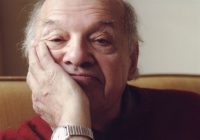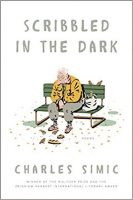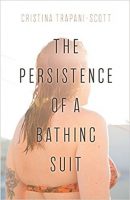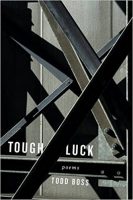June 15, 2017
Edited by David Sanders
Specimen Days
1809—François-Xavier Garneau, French-Canadian poet and historian (d. 1866), is born.
1888—Ramon Lopez Velarde, Mexican poet (La Sangre Devota), is born.
1920—Amy Clampitt, American poet (The Kingfisher), born in Iowa (d. 1994), is born.
1925—Jaime Sabines, Mexican poet (Tarumba, Maltiempes), is born.
1927—Ibn-e-Insha, Pakistani humourist and Urdu poet (d. 1978), is born.
1983—Srirangam Srinivasarao, also known as Sri Sri, Telugu poet (b. 1910), dies.

But at this remove what I think of as
strange and wonderful, strolling the side streets of Manhattan
on an April afternoon, seeing hybrid pear trees in blossom,
a tossing, vertiginous colonnade of foam, up above—
is the white petalfall, the warm snowdrift
of the indigenous wild plum of my childhood.
Nothing stays put. The world is a wheel.
All that we know, that we're
made of, is motion.
—from “Nothing Stays Put” by Amy Clampitt
“Nothing stays put. The world is a wheel. / All that we know, that we’re / made of, is motion.” – Amy Clampitt
World Poetry
Alice Oswald Takes £37,000 Griffin Prize with 'Breathtaking' Poetry

Falling Awake, already a much acclaimed collection, was cheered by 1,000-strong crowd at readings connected with the Canadian award. This dreamlike vision of the West Country carried off the 2017 International Griffin poetry prize, worth C$65,000 (£37,725). The same sum was also presented to the Vancouver poet Jordan Abel, who took home the Canadian prize with his long poem about cultural appropriation and racism, Injun.
Carol Ann Duffy Savaged Theresa May in This Election-themed Poem
Britain’s poet laureate has penned a poem about the election and it doesn’t look too kindly on Theresa May. In Saturday’s edition of The Guardian newspaper, Carol Ann Duffy summed up the feelings of many about May’s decision to hold an election and how it eventually turned out.
Alice Oswald has won the Griffin Poetry Prize.
Recent Reviews
Lost Addresses, Found Poems: Collections from Diann Blakely & Hélène Cardona
by Paul Wilner
“My fear is the common one, that her poetry should be lost,’’ Rodney Jones writes in the introduction to Lost Addresses: New and Selected Poems (100 pages; Salmon Poetry), a posthumously released collection by his friend and fellow Southerner, Diann Blakely. “There are ample reasons for a poet to be neglected, temporarily submerged in a trend, or permanently effaced, for poetry is a cold media and the music that the claim of poetry rests on may not always be acknowledged,’’ he adds. “This book is proof against forgetting.”
Gerald Stern Muses on His Coming Death
by Kristofer Collins

What will your last words be before dying? Will they be studied as a summation of your life’s work? Will they be deconstructed and puzzled over by strangers and academics long after you are gone? While you and I have probably given little to no thought about such things, a writer aware that he is nearing the end may well spend some time considering his final utterance.
A Voice for the Voiceless
by Charles Simic
Three books, two of them posthumous and one from 2001, by one of our finest poets, Philip Levine, who passed away in 2015. With so many of his contemporaries dying of late, one gets the feeling that the United States they knew and wrote about is vanishing along with them. This experience was familiar to previous generations of readers and either lamented or taken in stride, but not experienced as such a radical break as it is today, when our young seem to know less about our history than ever before and some seem to have no curiosity at all. Even twenty years ago, teaching Robert Lowell’s “For the Union Dead” and Allen Ginsberg’s “Howl” at my university, one could no longer assume that the students would be familiar with the civil rights movement and the Vietnam War, or would have much knowledge of what else was going on in this country when those two poems were written.
The poet Gerald Stern recently mused on his coming death in the Pittsburgh Post-Gazette.
Broadsides
Dear Epistle
by Anna Jackson
First prize in the 2015 Pen America Prison Writing Competition went to a poem called ‘Dear Voyage’, by Brian Batchelor, a prisoner serving a life-sentence without parole.1 Letter-writing has long been important to prisoners, and poets writing from prison have often figured their poems as letters; Richard Lovelace’s ‘To Althea’ proclaims his freedom to love equal to the liberty of angels.2 Batchelor’s poem looks to a more final liberty, the voyage out of life itself. If Lovelace’s poem proclaims all the world a world of liberty, so that even a prisoner is free within his prison cell so long as he lives and loves, Batchelor’s poem proclaims life itself a prison. ‘Dear crusted gravestone,’ he addresses his final destination, ‘Dear lichen / Dear vine, Dear dirt / ditch and spade […]’ It is an eerie and moving poem, and it is hardly surprising that the judges recognised the power of its tender address to an ‘anchorless and adrift’ voyage, the ‘Dear hunched horizon’ ahead, the ‘looming dark’.
Brooks’s Prosody: Three Sermons on the Warpland
by Carl Phillips
As Gwendolyn Brooks famously said in her Report from Part One, “Until 1967 my own blackness did not confront me with a shrill spelling of itself” — 1967 being when she attended the Second Black Writers’ Conference at Fisk University. What she seems to have meant was that a different way of feeling, understanding, and writing blackness overcame her. For, to be sure, her work prior to this is grounded in black family, speakers, and issues. But that work was also cast in sonnets, the iambic pentameter line of blank verse, the traditional English prosody — the master’s tools, as I sometimes think of them (master, as in master and slave) — of which Brooks had shown herself to be a master, culminating in the Pulitzer Prize for Annie Allen, a book that both acknowledges a debt to and deftly reworks another “white classic,” Virgil’s Aeneid.
Or, How I Learned to Keep Worrying: Collaborative Writing, Motherhood, and the Atom Bomb
By Ailbhe Darcy
In Inger Christensen’s long poem Alphabet, first published in Danish in 1981, the poet cooks potatoes. And atom bombs exist. While she stands in the kitchen peeling potatoes under the tap, atom bombs exist. While she turns a potato under the running water, atom bombs exist. The poet recites the dates and numbers, there in the kitchen
Yin and Yang: On Race in Claudia Rankine’s Citizen and Kamau Brathwaite’s Strange Fruit
by Vladimir Lucien
Two books that seem to come from a similar place. But even as they do they also do not, though they seem to be aiming to arrive at the same place; and from time to time find themselves intertwined. Jamaican-born American writer, Claudia Rankine and Barbadian Kamau Brathwaite. The former, living and working in the United States, the latter, currently living in the Caribbean having worked in North America for a number of years.
In Inger Christensen’s long poem Alphabet, first published in Danish in 1981, the poet cooks potatoes. And atom bombs exist.
Drafts & Fragments
Chinese Poetry Scholars Are 'Disgusted' by a New Book Written by a Robot
by Chris Weller
There are 139 Chinese poems in the new book "The Sunlight that Lost the Glass Window," and the fact they're all written by one artificially intelligent bot doesn't make local scholars too pleased. "It disgusted me with its slippery tone and rhythm," poet Yu Jian told local newspaper China Youth Daily, according to the South China Morning Post. "The sentences were aimless and superficial, lacking the inner logic for emotional expression."
Chinese poetry scholars are disgusted by a new book written by a robot.
Poetry In the News
Student Takes Poetry Professor to Court Demanding her Grade be Changed to an A
A mature student at the University of Wisconsin-Stevens Point has taken a professor to court, asking the judge to order the staff member to assign her an A for her Advanced Creative Writing Poetry class. Donna Kikkert, 56, filed the complaint against Professor Patricia Dyjak, claiming that the faculty member's choice of teaching material had alienated 'mainstream" students, and contributed to her receiving an F grade for the class.
Chana Bloch, Poet and Hebrew Translator, Is Dead at 77

Chana Bloch, a poet and an acclaimed translator of Hebrew verse whose intimate lyrics explored the mysteries and pains of love, her own illness and the unraveling of her first marriage, died on May 19 at her home in Berkeley, Calif. She was 77. The cause was complications of sarcoma, her husband, Dave Sutter, said. Ms. Bloch, an admirer of poets like Emily Dickinson, Anna Akhmatova and Elizabeth Bishop, specialized in taut, pared-down verse that fused disarming simplicity with emotional depth. Her subjects — family life, children, sex, aging — lay close to hand but resonated with deeper meanings, often enriched by biblical allusions.
New Books
Scribbled in the Dark: Poems by Charles Simic
[Hardcover] Ecco, 96 pp., $22.95

The latest volume of poetry from Charles Simic hums with the liveliness of the writer’s pen—Scribbled in the Dark brings the poet’s signature sardonic sense of humor, piercing social insight, and haunting lyricism to diverse and richly imagined landscapes. Peopled by policemen, presidents, kids in Halloween masks, a fortune-teller, a fly on the wall of the poet’s kitchen; on crowded New York streets, on park benches, and under darkened skies: the pages within toy with the end of the world and its infinity. Charles Simic continues to be an imitable voice in modern American poetry, one of its finest chroniclers of the human condition.
TechnoRage: Poems by William Olsen
[Paperback] Triquarterly, 104 pp., $16.95
William Olsen's TechnoRage is a meditative ode to nature. Its intensely lyrical poems remind us of our humanity, spinning free-ranging poetic conversations that question the ways of the world. In the age of the wide but often shallow lens of our new technology, Olsen takes a nod from Robert Frost and Gary Snyder, laying bare our need to return to the roots of things, where these poems find their voice. Olsen revels in language that is an intensely authentic rumination on our human isolation.
The Persistence of a Bathing Suit by Cristina Trapani-Scott
[Paperback] Finishing Line Press, 32 pp., $14.99

Cristina Trapani-Scott’s collection of poems The Persistence of a Bathing Suit explores the moments that fill the space between surviving a breast cancer diagnosis and accepting the inevitability of change and uncertainty. The poems move through that space by reflecting on quiet moments with family, on the physical changes that occur in that space, and finally the changed perspective on mortality.
The Songs We Know Best: John Ashbery's Early Life by Karin Roffman
[Hardcover] Farrar, Straus and Giroux, 336 pp., $30.00
The Songs We Know Best, the first comprehensive biography of the early life of John Ashbery―the winner of nearly every major American literary award―reveals the unusual ways he drew on the details of his youth to populate the poems that made him one of the most original and unpredictable forces of the last century in arts and letters.
Tough Luck: Poems by Todd Boss
[Hardcover] W. W. Norton & Company, 112 pp., $18.32

At the center of Tough Luck is a poem about the ill-fated I-35W Bridge in Minneapolis and its disastrous collapse, which killed 13 people and injured 145. The freighted, swiftly moving poems in Tough Luck crisscross the chasm between peril and safety as if between opposing riverbanks, revealing a frequently heart-stopping view of the muscled waters below. Marriage, family, home―all come crashing down, but Todd Boss rebuilds with his trademark musicality and “a reverent gusto for representing the tactile aspects of human life” (Tony Hoagland).
Cristina Trapani-Scott’s “The Persistence of a Bathing Suit” explores the moments after surviving a breast cancer diagnosis.
Correspondences
Why Griffin Poetry Prize Finalist Hoa Nguyen Would Never Use a Pen Name
Hoa Nguyen's book of poetry Violet Energy Ingots has been shortlisted for the $60,000 Griffin Poetry Prize, the richest prize for poetry in Canada. Violet Energy Ingots, Nguyen's fourth collection, is about finding contemplation in every day moments, and a reminder that nothing is permanent. We asked Nguyen to take the CBC Books Magic 8 Q&A and answer eight randomly selected questions from eight different writers.
Interview with Grant Clauser, GMP Poet and Cider Press
by Charlie Bondhus

Grant Clauser’s poetry manuscript Reckless Constellations was recently announced winner of the 2016 Cider Press Review Editors’ Prize and will be published in January 2018. Another poetry collection, The Magician’s Handbook, is forthcoming from PS Books. In addition to being a poet, teacher, and editor, Grant Clauser is a husband and father who works by day as a technology writer. He has two books of poetry in circulation — Necessary Myths (Broad Kill River Press) and The Trouble with Rivers (Foothills Publishing) — and his work has appeared in some pretty impressive journals including The American Poetry Review, Cincinnati Poetry Review, Painted Bride Quarterly, The Journal, and of course, The Good Men Project. Grant was kind enough to answer a few questions about work, writing, being a good man, and how those things tend to overlap.
Grant Clauser’s poetry manuscript Reckless Constellations won the 2016 Cider Press Review Editors’ Prize.
Envoi: Editor’s Notes
Lessons from the Past: Amy Clampitt
"I’ve been thinking lately of what’s happened over the centuries as an evolution away from the persistence and predominance of aural memory. The strong meter, as well as the recurring epithets, that tie the Iliad together, would have been a necessity when few if any could read, and poetry was handed down orally, from composer to auditor and from generation to generation. Hardly anyone memorizes poetry anymore. There used to be illiterate people, I gather, who knew reams of the Bible by heart. That kind of illiteracy is now rare. And as aural memory ceased to be essential, the character of poetic composition was bound to change, and so the music that vibrates solely in the brain, all but bypassing the sound of the speaking voice, became inevitably something somebody was going to explore."
—from “The Art of Poetry No. 45,” The Paris Review
“There used to be illiterate people, I gather, who knew reams of the Bible by heart. That kind of illiteracy is now rare.” – Ampy Clampitt